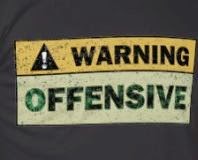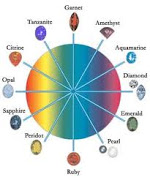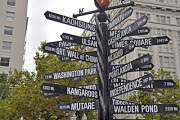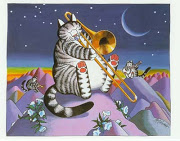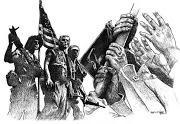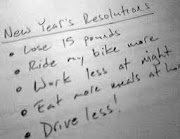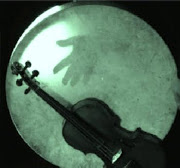Monday, July 31, 2017
Two Words: Somewhere Rocks
Ian Hunter: Cleveland Rocks
[purchase England Rocks]
[purchase Cleveland Rocks]
One of the advantages of a theme like this is that it allows me to write about pretty much any artist I can think of, because the odds are pretty high that I can find a song from that artist with a Two Word title.
It turns out that the great Ian Hunter has never been featured in the long history of this blog (although he was mentioned in a piece about his fellow member of Mott the Hoople, Mick Ralphs). After that band broke up, Hunter started a solo career. Although his self-titled first solo album was successful, his next two, which did not feature guitarist Mick Ronson, were not.
In 1977 Hunter released a single, “England Rocks,” in England, with the B-side, a song from his third album. It was very much in the glam-rock tradition of Mott the Hoople, featuring a prominent piano part, and lyrics that appeared to relate to the rise of punk (safety pins!) and references to his grandfather’s badges from World War II. I first heard the song at WPRB, from a compilation album, Shades of Ian Hunter: The Ballad of Ian Hunter and Mott the Hoople, which was released in 1979.
Also in 1979, Hunter released a new solo album, You're Never Alone with a Schizophrenic, which featured a reworked version of the song, titled “Cleveland Rocks.” Now, the song begins with a clip from Cleveland’s Alan Freed, the legendary DJ, the piano has been replaced by a synthesizer, and Mick Ronson is the guitarist. The lyrics are changed a bit—the grandfather in the original was a “villain,” now he’s a “rocker” and the WWII-era badges the singer wore have morphed into records he played.
Overall, I kind of like the “England” version better—it is less slick and a bit rougher around the edges. And I find the synth in the “Cleveland” version annoying. Interestingly, Hunter insisted that he originally wrote the song for Cleveland, but changed it to England, because his record company wouldn’t release it in that way in the US. Based on the lyrics, though, I’m not sure I’m buying that story, but what I think really doesn’t matter, does it?
“Cleveland Rocks” became probably Hunter’s most well-known solo song, especially in Cleveland, where legendary rock station WMMS would kick off the weekend by playing the song every Friday at 6. Cleveland mayor Dennis Kucinich gave Hunter the keys to the city in 1979. It was adopted by the Cleveland Indians and Cavaliers as a theme, and Hunter even performed the song in the pregame ceremonies of Game 3 of the 2007 NBA Finals in Cleveland.
A cover of “Cleveland Rocks,” by the Presidents of the United States of America, was used in the credits of seasons 3-7 the Drew Carey Show, which took place in the self-proclaimed “Rock ‘n’ Roll Capital of the World," and covers of the song by other artists were used in later seasons. The Ian Hunter original also was used in one episode of the show. This exposure helped to bring the song to the attention of a new audience.
Hunter continues to record well-received solo albums, and to tour, as a headliner, occasionally with a re-formed Mott the Hoople, and once as a member of Ringo Starr and his All-Starr Band.
Posted by J. David at 8:30 AM View Comments Links to this post
Labels: Ian Hunter, Mick Ralphs, Mick Ronson, Mott the Hoople, The Presidents of the United States of America, Two Words
Friday, July 28, 2017
Two Words: Four Women
Nina Simone: Four Women
[purchase]
Lisa Simone, Dianne Reeves, Angelique Kidjo, Lizz Wright: Four Women
[Not available for purchase]
Dee Dee Bridgewater: Four Women
[purchase]
Was Nina Simone the Toni Morrison of jazz? The case can be made with songs like this one. Both women used their art to present unflinching pictures of the black experience, black women especially. Four Women is exactly what the title suggests, a song that presents brief portraits of four women and the experiences that shaped them. Each woman gets one verse to tell her story. Simone’s genius here lay in the fact that that one brief verse was enough to tell us what she wanted us to know. This song is not easy to listen to, its lyrics harsh. Simone wanted us to understand our privilege in not having to live these lives. I would imagine that black women hearing this could listen to these words and rejoice in how far they have come, or reflect on how far they still have to go. I have not lived their lives, so I can not truly say. The rest of us can try to understand that Simone is not exaggerating here. We can allow her words to appeal to our better natures, and try to find out what we can do to help. We can begin by not practicing the types of exploitation described here.
There can be no doubt that this song, from 1966, continues to resonate today. It is a staple of many tributes to Nina Simone, such as the one the quartet version I have featured here comes from. There would possibly be more covers of the song now if the major labels were willing to release such material. Dee Dee Bridgewater’s beautiful take on the song comes from an album released on an independent label. That album chronicles Bridgewater’s quest to connect to her African origins by making music with Malian musicians.
Posted by Darius at 4:41 AM View Comments Links to this post
Labels: Angelique Kidjo, Dee Dee Bridgewater, Dianne Reeves, Lisa Simone, Lizz Wright, Nina Simone
Thursday, July 27, 2017
TWO WORDS: GUITAR MAN
[ Purchase ]
Justice delayed: After years of being unfairly bypassed, Jerry Reed is finally making his way to the Country Music Hall of Fame in 2017. It's easy to become obsessed by the snub. (How did Charlie Daniels get in before Reed?) Ultimately, it doesn't matter: Reed is a seminal figure in country music, and hopefully this recognition will allow a new generation to discover his great records, writing and guitar picking.
He was born Jerry Reed Hubbard in 1937. He emerged from an impoverished childhood and developed his chops as a lightning-fast guitar player. He began recording rockabilly sides for the regional NRC label and then Capitol. (I could have just as easily chosen "Mister Whiz" for this entry.)
After a stint in the military, Reed recorded 45s for Columbia that almost no one heard. One of the few that did listen was Chet Atkins, who bought out the contract and signed Reed to RCA. (They are all one big, dying conglomerate now.) Atkins got his money's worth as Reed emerged as a prolific side musician. His distinctive nylon-string picking shows up on '60s and '70s records by Elvis Presley, Dolly Parton, Porter Wagoner, Skeeter Davis and others. Joan Baez sought him out when she came to Nashville to record. His lightning fast, run-the-fretboard style of picking was widely admired, and Atkins frequently cited him as the best guitarist in Nashville.
Still, Atkins, who guided RCA's country division, couldn't initially figure out a way to get Reed hits. "Guitar Man" was his debut single for RCA, and it stalled at #53 on the country charts in 1967. (A year later, Elvis had a minor pop hit with the song.)
Slowly Reed and Atkins carved out a style that resonoated with country audiences -- a mix of talking blues, cocktail-lounge ballads and novelty records. Ironically, those novelty songs -- "When You're Hot You're Hot," "Amos Moses" "Alabama Wild Man" and others -- may have kept some from taking Nashville's best guitar man too seriously. Yet Reed managed a streak of top 20 records that stretched from 1968 to 1983.
In paticular, his 1970s output is stellar. He cranked out full-length LPs like clockwork -- 20 studio records between 1970 and 1979. They stand out not only because of the blistering picking, but great song selection. Reed avoided the dull covers that mar so many 1970s country records, particularly those from RCA. He wrote much of his material, and augmented those songs with obscure tunes from the American songbook. He was one of the few country recording artists to use a full drum set, and his records sounded great, despite RCA's horrible pressing practices. (Get a load of his take on another two-word track, Sixteen Tons.)
Whatever the reason, Reed didn't get the recognition he deserved in his lifetime, passing away in 2008. I look forward to seeing Reed's Hall of Fame plaque later this year. "Guitar Man" are two words that aptly sum up his great career.
Posted by mike at 6:22 PM View Comments Links to this post
Labels: Jerry Reed
TWO WORDS: TWO TRIBES
It seems strangely apt to be looking at this song again, and the accompanying video, as relations between the US and Russia (nee USSR) become increasingly strained. (It's funny, as an adult in 1984, I can't quite recall things being that bad, even if reminding myself and reviewing, yes, they clearly were. Mind you, I would have guessed that the Reagan era was a decade or so ahead, so maybe it's my problem!)
Frankie Goes to Hollywood exploded onto and into the UK charts in 1984, buoyed on a wave of an outraged media and a keenly exploitative PR campaign. There is nothing my country enjoys more than the combination of scandal with prurience, always peeking through nearly closed fingers at the decried depravities and disgustingness. Indeed, the british press specialises therein, having a field day with this band. So, when an outraged disc jockey, those purveyors of public taste and decency, suddenly cottons on that "Relax" might be, um, rather more energetic than the name invites, with, shock horror, references to a then barely legal gay S&M scene, their star was guaranteed.
"Two Tribes", the follow up single, was barely a cats whisker behind, vaunting straight to the top of the charts, remaining there for longer than any other single of that whole decade, even sucking "Relax" back up the charts in its wake.. It's true that ZTT, the record company, were at the peak of their game, manipulating the charts and feeding a product hungry population: this was way before such science fiction as downloading and streaming. This was largely black plastic. With 5 varying mixes across the domains of 7 and 12 inches, all marketed as essential, with the collected sales all counting toward the same song, is it any surprise sales were massive, the last great surge of physical product. In truth the song is a slighter variation of its predecessor, both being, arguably, more the product of producer Trevor Horn and his Fairlight synthesiser than of 5 scallies from Liverpool, even if the singer, Holly Johnson exuded as much charisma as the others mostly lacked it. (And was the only one with a surviving career of sorts.) But, as a sound, as a template it is huge, a tsunami of rattly bass, clattering percussion and swathes of keyboard, vocals with echo on their echoes. The different versions varied largely as to what else was chucked into the mix, varying samples scatter gunned over the none-more-exuberant Mr Johnson. These came from sources as disparate as Public Service films around what to do when the H bomb drops, to snippets of speeches from, amongst others, Hitler and lyrics from Don McClean, all fed into the mouth of Ronald Reagan, via UK uber-mimic, Chris Barrie. The video came from ex-10 cc band members, Kevin Godley and Lol Creme, and featured actors disguised as Reagan and the then USSR supremo, Viktor Chernenko. (No, me neither.....) Tussling in a boxing ring, compered by Holly Johnson, as fellow world leaders look on. It doesn't end well. There was also a substantively longer versions, with yet more samples of speech, but, given the original was deemed to strong, without edits, for MTV, this had little exposure. (Have I got it here? Sure I have.)
The song, in al its myriad versions, had a long life, eventually even reaching the US Billboard top 50, just, at 43. Re-releases came again in '89 and '94, with a 3rd assault in 2000. This time the remixes were by external parties, usually several available in each iteration, now on CD, with up to 5 versions on each disc. I have to say the song, in the majority, still excites, galvanising frissons of nostalgic glee in my ageing bones. The triad of songs, "Relax", "Two Tribes" and follow up, "The Power of Love" are, in my opinion, as strong a launch pad as any new band can or could offer, certainly compared to the fickleness of now where longevity seems more often down to luck than talent. Afterwards? Well, no such luck for Frankie as, sans Horn, the band were but a shadow of what once was, with little left to say, eventually dissolving in a sea of rancour and regret.
Fill your boots!!!
Posted by Seuras Og at 3:50 PM View Comments Links to this post
Labels: Frankie Goes To Hollywood, Godley and Creme, Holly Johnson, Relax, The Power of Love, Trevor Horn, Two Tribes, Two Words
Tuesday, July 25, 2017
Two Words: Dire Wolf
Grateful Dead: Dire Wolf
[purchase]
The Grateful Dead album Workingman’s Dead was released in 1970. I was ten years old, but my oldest brother made sure I heard it right away. And so began my love of the music of the Grateful Dead. Dire Wolf was the song that won me over. I could not have articulated at the time what is was that drew me to the song, but I can now. It was the song’s folkloric quality. The narrative is steeped in the traditions and attitudes of the western cowboys and settlers. The Grateful Dead told stories of these people throughout their career, and these songs were not based on any historical figures. Instead, they were a retelling of an attitude. Women were idealized backwoods angels, as in Sugar Magnolia and Althea. Men were gamblers and gunslingers, but they were also loving fathers and uncles, interested in mentoring their sons and nephews about the ways of the world. That world would unfold for me over the course of many years and many songs. But Dire Wolf is simpler than that. It is a representation of how Death comes for a man like the ones in these later songs. Death is a menacing figure, yes, but he is invited in for a game of cards. The song’s narrator does not want to die, but the cards are literally stacked against him. Still the game is a friendly one, and perhaps it helps the narrator accept that it is his time. As a ten year old, I had no experience of death, but I knew at some level that the song’s theme was universal.
The mythos that the Grateful Dead introduced me to with Dire Wolf was one that also encompassed a wide range of musical influences. The song itself introduced elements I would recall years later when I began to learn about the traditions of country music. But the Grateful Dead also covered blues folk, and jazz, and they made an astonishing range of songs seem like natural part of a the world view that began to develop in Dire Wolf, even when the band was covering someone else’s song. I would later explore many of these musical styles based on these introductions, especially the blues.
Grateful Dead: Dire Wolf (live, San Francisco Civic Auditorium, 12/28/83)
In my tribute to the Grateful Dead, I could hardly neglect to mention their influence as a live band. I actually never got a chance to see them live, but I nevertheless bought into their ideas of what live performance should be. The vocals on live Grateful Dead tracks can sometimes be painful to listen to, which eliminated from my consideration several performances of this song. But the song itself is a living thing. Each performance is a snapshot in the life of the band and its members, and so how the song is performed changes and evolves. This version from 1983 is far removed from the country trappings of the studio version, but it is still definitely Dire Wolf. Now the song is a rock song, with interesting keyboard lines that reflect a lineup change from when the studio version was done.
There is no purchase link for this version of the song. The Grateful Dead catalog includes a dauntingly long list of single concert releases from shows starting in 1966, and ending in 1993. Surprisingly, only one release, Dick’s Picks 6, includes a show from 1983, and the band did not perform Dire Wolf that night. There are no shows at all from 1984. If the rest of the show was as good as this Dire Wolf, this is a show that should be made available.
Posted by Darius at 4:27 AM View Comments Links to this post
Labels: grateful dead, Two Words
Sunday, July 23, 2017
Two Words: Summertime Thing
[purchase the original]
Back in 2010, when few of the current Star Maker Machine writers were associated with the blog, we did a theme about songs with one word titles. It seemed like time to advance the counter, and focus on songs with Two Word titles. (We promise not to do a theme about songs with 27 word titles).
Where I live, in suburban New York, it has been hot. High-80s, low 90s, with humidity. I know that other parts of the country are suffering through record heat waves, as are parts of Europe (or so I hear from my daughter in Barcelona). Complaining about the heat during the summer, though, is kind of a waste of time. It is, as Chuck Prophet noted, a “Summertime Thing.”
Prophet is someone who hasn’t gotten nearly enough love on this blog, despite his long career, first in the 80s psychedelic Americana band Green on Red, and later as a songwriter, collaborator and solo artist. I’ve been a fan for a while, and he is near the top of my list of artists who I want to see for the first time (I’ll be crossing the Tedeschi Trucks Band off that list in October). I wrote more about Prophet here, so feel free to check that out, if you want more background.
Prophet was born in Whittier, California, near Los Angeles, where it gets pretty warm, but lives now in San Francisco, where Mark Twain famously didn’t actually denigrate the summer weather. “Summertime Thing,” from Prophet’s 2002 album No Other Love, was a bit of a radio hit. It is really a great summer song. The song has a mellow, laid back vibe, and talks about the hot sun, hazy skies, burning pavement, loud parties and skinny dipping in a river. Plus, he name-checks the Beach Boys. Add that to Prophet’s customary drawling vocals, which seem perfect for a hot day, and you just want to slather on the sun screen, grab a crime novel and sit under a big umbrella with a cold drink dripping condensation waiting nearby.
The original version is great, but I’ve linked above to a live version from a 2013 performance at a club in Martinez, California, outside of San Francisco. It stretches the 5 minute song out to past 9 minutes, mostly by adding a long, languorous jam that adds to the easygoing, summertime feel of the song. Even though the performance was in March.
Posted by J. David at 12:30 AM View Comments Links to this post
Labels: Beach Boys, Chuck Prophet, Green on Red, Two Words
Friday, July 21, 2017
On/ Off: On the Amazon
Don McLean: On the Amazon
[purchase On the Amazon from Amazon]
I am not a big fan of Don McLean. He is an artist I know mainly for American Pie, and it has taken me many years to come to appreciate him for that. However, my wife was a big fan at one time. That is why I knew about the song On the Amazon. The song is a deep album track from McLean’s self titled 1972 release. It is best considered to be a novelty song, with the singer presenting a catalog of imaginary Amazonian denizens with some highly unlikely names, and the song is quite amusing. On the Amazon also presents us with a musical mystery. Unlike most of the material Don McLean recorded, On the Amazon is a cover, and a very unlikely one.
Bobby Howes: On the Amazon
[Not available for purchase]
The original version was recorded by Bobby Howes in 1929. It was written for the musical Mr Cinders, but was apparently left out of the London production that was mounted that year. Still, the song was considered to have enough merit to warrant a recording by Bobby Howes, who played Jim, the character who would have sung the song in the show. Mr Cinders is a gender reversed version of Cinderella. Jim goes to the ball disguised as a famous explorer, and On the Amazon supposedly boasts of his adventures in a place Jim has actually never visited.
The question I can not answer is, how did Don McLean come to hear the song? The show was a modest success in London, playing for about a year and a half. It made its way to Europe, where a translation into German was also successful. But the show never made it to Broadway. On the Amazon was not even the best known song from the show. That was Spread a Little Happiness, which did become something of a standard in England. So maybe McLean heard that song and wondered what else the songwriters had done. He would have had to do some research, at a time when there was no internet to help. It is clear to me as well that McLean didn’t just find the sheet music for On the Amazon. His performance includes some vocal mannerisms that are clearly from the Bobby Howes recording.
On the Amazon is still hardly a standard today. Spread a Little Hapiness and the show Mr Cinders have however seen some renewed interest. Sting had a minor hit with his recording of the song for the film Brimstone and Treacle. That may have led to a London revival of the show in 1983. The only record I could find of a US performance of Mr Cinders was a 1988 production that was mounted in Connecticut. There have been a number of covers of Spread a Little Happiness since then, although none have come near charting.
One final note: On the Amazon by New Riders of the Purple Sage is a completely different song.
Posted by Darius at 4:13 AM View Comments Links to this post
Labels: Bobby Howes, Don McLean, Mr Cinders, On/ Off
Wednesday, July 19, 2017
On/Off: Turn It On Again
[purchase]
If you are a fan of Genesis, as I have made it abundantly clear that I am, there are a number of turning points where people jumped on and off the band’s wagon. Genesis’ rise to popularity probably began with their second album, Trespass, which introduced the band’s dense, theatrical progressive style (their debut, From Genesis to Revelation, sounds mostly like a cross between The Moody Blues and pre-disco Bee Gees). From there, the band gathered followers until 1974’s epic (and epically confusing) concept double album, The Lamb Lies Down on Broadway. Then, lead singer and focal point, Peter Gabriel climbed up Solsbury Hill and out of the band.
Gabriel was, of course, replaced by Phil Collins, and while the next few albums were somewhat lighter and simpler than in the Gabriel-era, they were still recognizably prog. Many Gabriel lovers were reflexively turned off, but Collins’ greater accessibility (and even a love song) retained some fans and attracted more. But when guitarist Steve Hackett defected, and Genesis released …And Then There Were Three…, with an actual pop hit, much of the old guard jumped off.
Not me, though. I had moved to college at that point, and was working at WPRB, at a time when our staff included both lovers of prog and punk (and lovers of both), when the rock music world was really changing. And while it seemed that Genesis might have been done, instead, we got Duke, which I liked. It had long, proggy songs, but also harder rock, and maybe one of the band’s most divisive songs, “Misunderstanding,” an obvious attempt at a pop hit that sounded like nothing the band had ever done. Collins reportedly based the song on The Beach Boys' "Sail On, Sailor", Sly and the Family Stone's "Hot Fun in the Summertime" and (ugh!) Toto's "Hold the Line.” The album was the band’s first to top the UK charts, and hit 11 on the US Billboard Hot 200. I remember long discussions in the WPRB studios as to whether Duke indicated that the band was staying on course, or whether “Misunderstanding” and some of the other poppier tracks were an indication that they were off the tracks.
As it happened, “Turn It On Again,” our featured and theme-appropriate song, was probably the song that showed the direction that Genesis was heading towards. An apparently fairly straight ahead rocker about a man obsessed with television, it nevertheless had sections in odd time signatures (13/4 and 9/4). (Aside—the first song I thought about for this theme, The Tubes’ “Turn Me On,” another TV focused tune, was actually the subject of this piece I wrote back in 2014).
When the band reconvened to create their new album, they reportedly decided to focus on simpler songs, and the result was Abacab. That album’s harder edges, punchier synths, “gated” drum sound and even horns, led to commercial success, reaching number one on the UK Albums Chart and number 7 on the US Billboard 200, but I think that it is fair to say that fans of songs like “Supper’s Ready,” jumped off the bandwagon in droves. A popular (mostly) live double album was next, followed by a self-titled disc in 1983, that, while still retaining a few longer pieces, is probably mostly remembered for its pop hits, and the catchy, but ultimately very embarrassing song, “Illegal Alien.” The album reached No. 1 in the UK and No. 9 in the US, so clearly their fanbase was increasing, but, I suspect, even more longtime supporters were turned off.
I flipped the “off” switch on my fandom after the next disc, Invisible Touch, which had some well-crafted songs, but ultimately left me cold. Although I heard some of the songs on the next album, We Can’t Dance, on the radio, I didn’t buy it. The next album was recorded without Collins, and I think it is fair to say that most Genesis fans were put off by Calling All Stations—I know that I never turned it on.
That all being said, there have been rumors over the past few years of a Genesis reunion, now that Phil Collins has rescinded his retirement notice. If I were a betting man, and I’m not, I’d say the chances of a Collins/Rutherford/Banks reunion is high—it would incredibly lucrative to get them on stage (and probably a popular album, if they cut one). Hackett, who often tours playing old Genesis songs, has indicated a willingness to join, but I’d bet that scheduling would make that a less likely option. And I think that the chances of Gabriel signing on would be low, although the concept has been bandied about. I’d be interested in seeing them, increasingly so depending on how much of the “classic” lineup was on stage, but suspect that it would be a stadium tour, which turns me off.
Posted by J. David at 8:00 AM View Comments Links to this post
Labels: Genesis, Mike Rutherford, On/ Off, Peter Gabriel, Phil Collins, Sly and the Family Stone, Steve Hackett, The Beach Boys, The Bee Gees, The Moody Blues, The Tubes, Tony Banks








































































